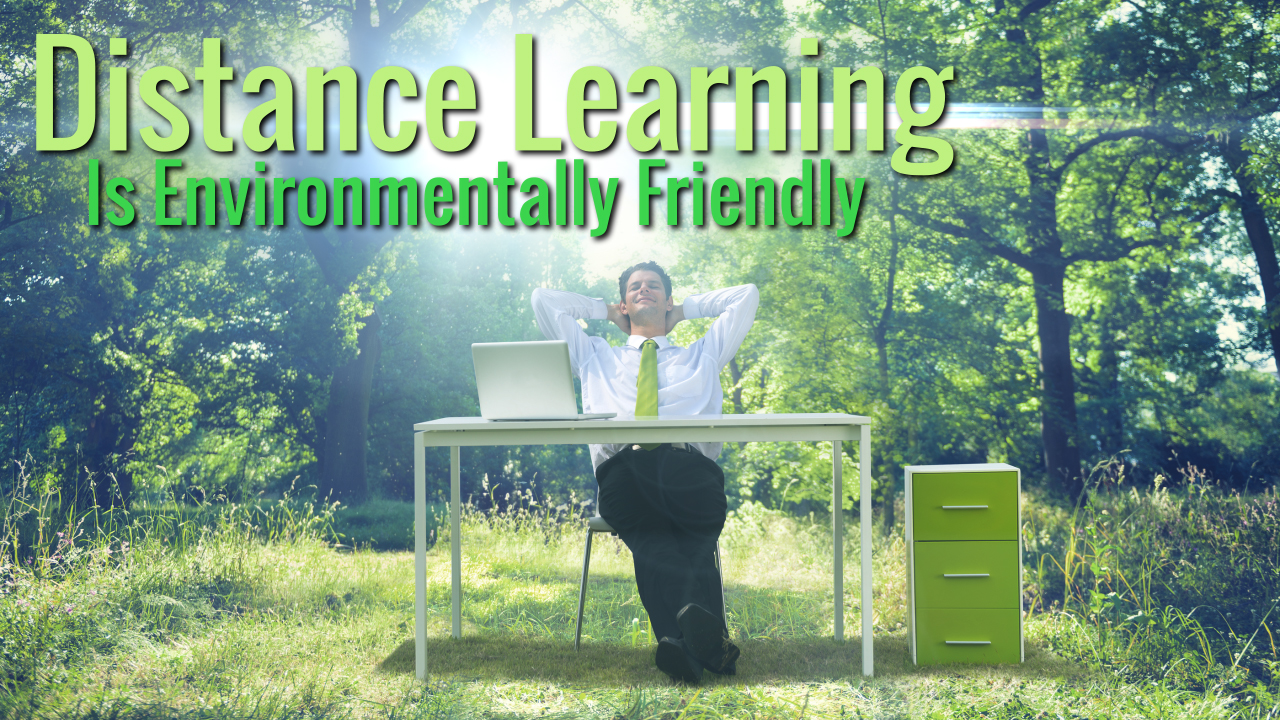

Distance Learning Is Environmentally Friendly

As someone who is considering enrolling in an online degree program, you are probably already aware of the numerous benefits of distance learning. In addition to being affordable and flexible, you receive the same high quality education as students who attend classes in the traditional manner. One thing you might not have considered is how your decision to complete your education via the Internet has a positive effect on the environment. From reducing greenhouse gas emissions to saving trees from being made into paper, online learning is an environmentally friendly choice.
Less Air Pollution and Traffic Congestion
In 2011, two professors affiliated with the Online Journal of Distance Education Administration surveyed 100 online students about their driving habits. While some did occasionally drive to campus, most had sufficient resources to complete their work online from home. The professors estimated that over the course of the semester, keeping these 100 students off the road resulted in five to 10 tons in reduced greenhouse gas emissions.
By taking classes online, you also do your part to reduce traffic jams. This is especially true if you live in a large metropolitan area. The less you drive your car, the longer you can expect it to last before requiring replacement. That means there is one less vehicle at a local junkyard taking up space that could be used for other purposes.
Reduced Need to Print Paper and Maintain Office Equipment
According to Scholarix, a company that develops curriculum for online learning, 350 million print cartridges end up in landfills every year. This is despite the fact that several companies that manufacture print cartridges give consumers the option of refilling them. When you take classes online, it completely eliminates the need to print tests, study notes and other learning materials.
By reducing the need for so much printing, online schools also help to save electricity. Copiers, computers and printers must be plugged in to work properly, which means they utilize a fair amount of power from local utility companies. Like cars, electronic resources last longer when they are used less often. This means fewer of them end up in landfills, where they would serve little purpose but to contribute to pollution.
No Need for Colleges to Physically Expand
Traditional colleges often lack the funds to make classrooms and common areas comfortable for students. However, the administration may be forced to expand once enrollment reaches a certain level. Often times, this means taking over space that was previously vacant. Adding on to the physical structure requires the removal of trees and natural vegetation in addition to using various types of possibly toxic building materials. Once the expansion is complete, there are additional heating and cooling costs to consider.
Attend Brighton College No Matter Where You Live
Brighton College, which is physically located in Scottsdale, Arizona, offers allied health, business and paralegal degree options as well as continuing education programs. Whether you’re a working adult looking for greater flexibility or someone who takes pride in preserving the environment, we invite you to contact us to learn more.